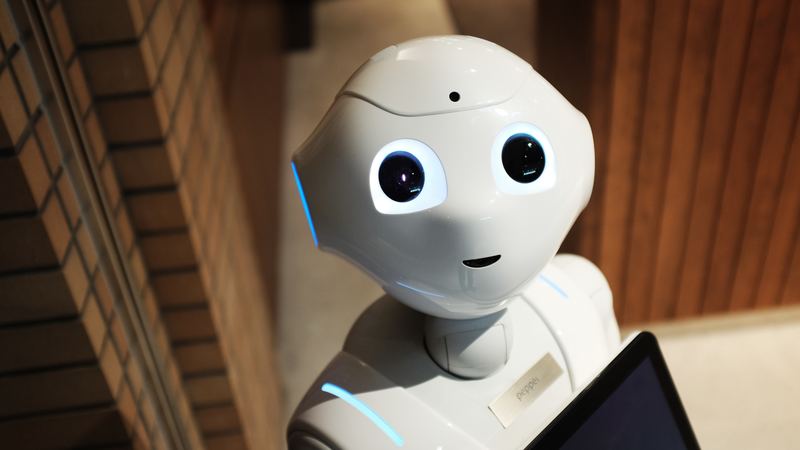The Influence Of Ai On Media Agencies
The vanguard of AI has advanced (and keeps doing so) much further and faster than anyone could have predicted. There are new doors opening up left and right— and the possibilities of expansion will continue to unfold in ways we can’t predict yet.
Cutting-edge machine learning is showing us a whole new world in oh-so-many aspects of our lives. However, ‘with great power comes great responsibility’, and there are issues and pitfalls that need addressing.
In the world of media agencies, AI (and automation in general) is making great strides. How does this affect the shape, flavour, and future of the industry?
The answer isn’t fixed yet, but here is what experts are saying on the topic of AI in media agencies. Let’s take a look!
1. What’s the current function of AI in a media agency?
Nowadays, and in the near future, the role of AI in media agencies orbits around increased efficiency and the speed of routine processes. What for? This allows actual humans to add insightful, data-driven value to the activity of customers. The main areas that are influenced are:
- A faster feedback loop between activity, measures, and human-based analysis that allows for an optimised performance in the client’s continued activity.
- Number data can be easily crunched out by AI, freeing up people for more detailed, in-depth analysis of the results.
- Routine buying decisions can be automated, leading to better strategies in added value and performance. For example, long-tailed keywords can be managed by the algorithm, concentrating human resources on the top-value driving terms.
The results? Increased performance and much better management of human resources.
2. How does AI show up in a media expert’s day-to-day?
At the moment, the possibilities of AI aren’t yet fully exploited. They do, though, show up in several ways in the daily experience of a media expert.
Most remarkably, we can say that AI is already influencing programmatic buying platforms. It makes routine optimisation loop automatic— the learnings from numerically-monitored activity are automatically applied by the AI system (instead of all of this being painstakingly carried out by humans). What’s more, AI isn’t static: it just keeps learning what performs best!
3. What are the most pressing ethical issues around the media use of AI?
While many clients are not too concerned (yet) about the ethical side of AI and are choosing instead to just implement it fast, these issues are bound to become more visible in the near future.
The clearest areas that will open up to the ethical debate are consumers’ privacy and the use of personal data— and whether there’s too much of it. In the end, there might be a reaction from the public to reject creepy levels of personalisation and, obviously, the brands that use personal data this way.
4. How will AI impact agencies in terms of structure and size?
As you already know, there are many optimisation and growth opportunities arising from AI implementation. But there are also risks showing up for agencies that can harm success. Mainly, these risks involve cutting back too much on the human side of the equation and relying too much on AI.
If there is a gap between the planning and media activation, this can cause humans to not pay close attention to processes. The results can be pretty bad: mistakes that are amplified before anyone realises they’re even there, and falling into a dead-end loop of AI-activated channels because people stop looking for new ways to drive performance.
5. What’s the next AI step in marketing?
Word of experts has it that deeper, more tailored personalisation of media is one of the oncoming trends. OOH (Out Of Home) channels will probably feel it the most, as digitisation and personalisation tech (hello, facial recognition) gets fully incorporated into them.
Also, we’ll see a big integration of new data sources into AI-powered systems— say, clients’ data management platforms (DMPs) will receive the input of offline activity data, web analytics, and CRM databases. All of that will be directed to AI for top optimisation!
6. Can media agencies and brands implement AI without paying a human cost?
Though it’d be awesome to say ‘no’, the truth is that there will always be a human cost to AI technology. This automatisation will definitely replace some jobs currently held by humans.
7. How can a junior media agency employee safeguard their career?
As in any other professional field, the key is to stay interested, active, and willing to evolve. Do your homework and stay actualised on your channel’s constant development— in order to add human value to clients (the one limitation of AI), you need to have a deep understanding of the shifting activity, of its results, and of what it implies for businesses.
A mine of opportunity lies in the field of AI itself: its development and management. It’s a good strategy to become an expert in the juncture between AI-generated data and performance-driving, actionable insights to actually enhance strategy.
Are you ready to buckle down and invest in your future in AI-powered Media Agencies?





